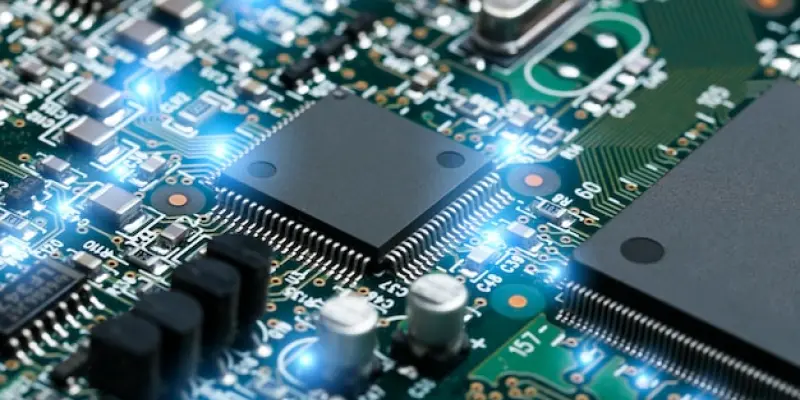Intel’s recent declaration regarding the successful benchmarking of its Core Ultra Series 2 processors, showcasing complete neural processing unit (NPU) support, continues to ignite a vigorous discourse among technology experts. This announcement, juxtaposed against the backdrop of formidable contenders like AMD’s Strix Point and Qualcomm’s Snapdragon XElite, propels a spectrum of opinions concerning the significance and potential ramifications of Intel’s achievements. The unfolding conversation among industry analysts paints a complex picture, teetering between skepticism and cautious optimism as various stakeholders evaluate the implications of these benchmark outcomes.
Intel’s Bold Declaration
Benchmark Success
On April 25, 2023, Intel unveiled its triumphs using the MLPerf Client v0.6 benchmark from ML Commons, an event where it claimed superiority in NPU support metrics. The company highlighted its processors’ ability to achieve faster response times and deliver higher output through the NPU when compared to direct competitors like AMD and Qualcomm. By shining a light on these metrics, Intel aims to solidify its reputation as a powerhouse in the AI landscape, asserting that its hardware stands ready to support the next generation of AI enhancements.
Showcase of Performance
Intel’s presentation of their first-word response time of 1.09 seconds alongside an impressive throughput of 18.55 tokens per second has been positioned as a testament to their real-time AI interaction capabilities. By emphasizing these performance figures, Intel sets the stage to establish itself as a leader in competitive AI technology, stressing the utility and potential impact these advancements can deliver. These statistics not only reinforce Intel’s strategic focus on AI innovation but, more critically, they propose a vision where real-time processing becomes more streamlined and accessible.
Industry Analyst Reactions
Skepticism and Optimism
Despite Intel’s comprehensive assertions, a gamut of reactions from industry analysts has emerged, providing a prism through which this development is examined. Anshel Sag, a principal analyst at Moor Insights & Strategy, interprets the MLPerf benchmark as a quintessential AI performance measure that underscores Intel’s prowess, notably in Independent Software Vendor (ISV) engagements. His insights acknowledge Intel’s strengths while recognizing the benchmark as a critical tool in the broader AI narrative. This performance, he notes, could potentially bolster Intel’s role in supporting AI’s expanding footprint across various software applications and platforms.
Relevance and Timing
In contrast, Alvin Nguyen, a senior analyst at Forrester Research, presents a contrarian view, questioning the timeliness and importance of Intel’s claims. Nguyen observes the conspicuous absence of a transformative AI application that could fully exploit NPU capabilities, casting a shadow over the immediate relevance of these benchmarks. He champions the necessity for universally standardized benchmarks that could provide a level playing field for comparison across diverse technological platforms.
Future Utility of NPUs
Importance of Lightweight Tasks
In dissecting the present-day importance of NPU benchmarks, Thomas Randall, research lead at Info-Tech Research Group, expresses some reservations due to the predominantly lightweight tasks NPUs are tasked with. Randall articulates a prudent perspective, positing that while current benchmarks are a significant talking point, they might not yet encapsulate the full potential or complexity AI demands might soon present. Aspiring AI systems are likely to elevate the role of NPUs, crafting new pathways and ushering in efficiency nuances that could redefine AI processing norms.
Efficiency in AI Applications
Randall further forecasts a future where NPUs could become indispensable within AI-heavy applications, citing examples such as Adobe Photoshop, where optimization and energy efficiency are crucial. He suggests that as applications become more intricate and the demand for AI processing intensifies, NPUs’ energy-efficient operations might provide significant strategic advantages over traditional processing units like GPUs.
Strategic NPU Utilization
Task-Specific Efficiency
Drawing from a nuanced understanding of NPU utility, Anshel Sag discusses how specific workloads are optimally managed by NPUs due to their energy-efficient nature. NPUs offer distinctive advantages, especially for jobs with continuous execution that benefit from their lower power consumption compared to GPUs. While GPUs may excel in situations requiring immediate, high-performance output, NPUs shine in ongoing processes that emphasize efficiency and consistent performance.
System Optimization
As AI continues to advance, the conversation pivots to the importance of effective workload scheduling systems that can strategically distribute processing demands among CPUs, GPUs, and NPUs, optimizing overall system performance. By orchestrating tasks efficiently, systems can achieve heightened performance levels, align with energy-saving initiatives, and improve the execution of complex workflows.
Industry Peer Positions
AMD’s Competitive Edge
Faced with Intel’s assertive claims, AMD remains resolute, highlighting its concerted efforts to maintain competitiveness through optimized workload management and efficient runtime environments. AMD promotes its Ryzen AI 300 Series, boasting enhanced performance on specific metrics, which they assert demonstrate a noteworthy advantage over Intel’s offerings. This statement serves as a rebuttal to Intel’s claimed supremacy, suggesting that the competition in AI processor technology remains vibrant and intensely contested.
Broad Perspective
Intel’s recent announcement highlighting the successful benchmarking of its Core Ultra Series 2 processors, complete with full neural processing unit (NPU) support, has sparked a spirited debate among tech enthusiasts and industry experts. This development comes at a time when major competitors like AMD with its Strix Point and Qualcomm with the Snapdragon XElite are vying for prominence. As these industry insiders weigh the potential effects of Intel’s benchmarks, the dialogue is a complex blend of skepticism and cautious optimism.

